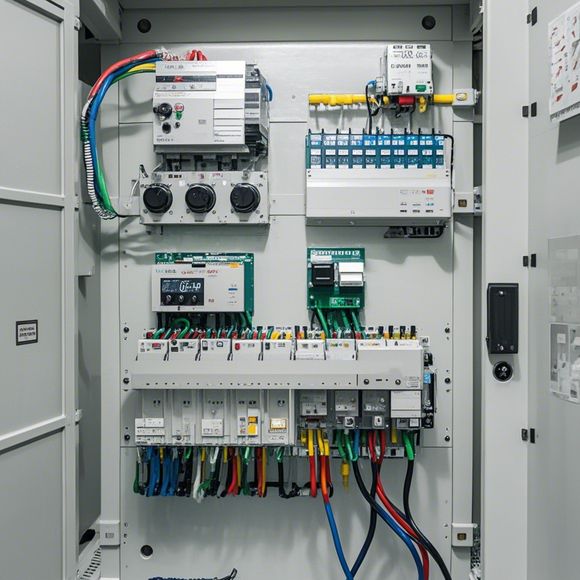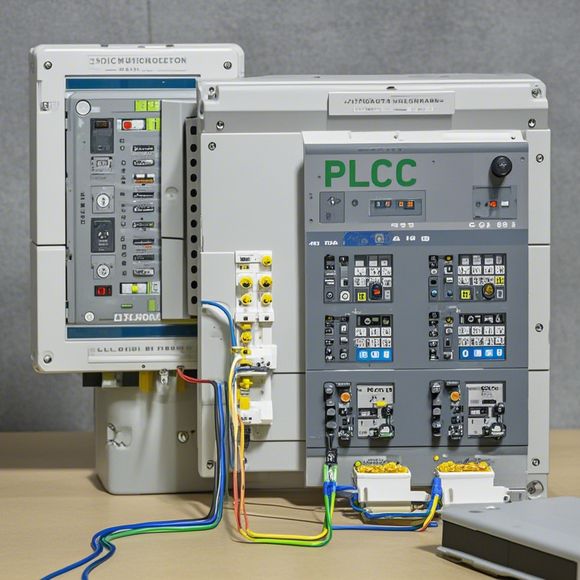Whats the Purpose of PLC Controllers for Your Factory Automation?
PLC controllers are a vital component in many factories. Their primary function is to control and monitor processes, ensuring that the machinery operates efficiently and safely. They can be programmed to perform a variety of tasks, such as feeding materials into machines, monitoring output quality, and adjusting settings as needed. By using PLC controllers, businesses can save on energy costs, improve production speeds, and reduce downtime due to maintenance issues. Overall, they provide an essential tool for modern industrial operations.
1.Introduction to PLC Controllers
PLC controllers (Programmable Logic Controllers) are essential components in modern manufacturing environments, providing the ability to automate and control industrial processes with precision and reliability. These systems allow for complex operations that would be difficult or impossible to manually manage, ensuring consistent production output and reducing downtime.
2. How They Work
An PLC system is designed around a central processing unit (CPU), which is responsible for interpreting and executing instructions from a variety of input devices such as switches, sensors, and other hardware components. The CPU then communicates with output devices, such as motors, relays, and actuators, to execute commands and respond to changing conditions.

This communication occurs via a network of wires, known as a fieldbus, which allows the PLC to connect to various sensors and actuators throughout the factory. The network enables real-time data exchange between the PLC and its components, allowing the system to make informed decisions and react quickly to changes in the environment.
One key benefit of using an PLC controller is its flexibility. With the ability to program and modify the logic of the system based on specific requirements or changes in the factory, PLCs can adapt to new challenges and optimize performance over time. This flexibility also allows for cost savings, as modifications or updates can be made without the need to replace entire equipment.
3. Applications of PLC Controllers
PLCs have a wide range of applications in various industries, including manufacturing, transportation, and healthcare. In manufacturing, they are used to control machines, monitor quality, and optimize production processes. In transportation, they are used to control traffic lights, monitor vehicle speed, and ensure safety on highways. And in healthcare, they are used to manage patient data, monitor medical devices, and provide real-time information to doctors and nurses.
4. Benefits of Using PLC Controllers

The benefits of using PLC controllers are numerous, making them a popular choice for many businesses looking to streamline their operations and increase efficiency. Here are some of the key reasons why PLCs are so effective:
Increased Efficiency: By automating repetitive tasks and minimizing human error, PLCs can significantly reduce downtime, improve productivity, and boost overall efficiency.
Cost Savings: PLCs can help businesses save money by reducing the need for specialized personnel and equipment, as well as by optimizing energy use and reducing waste.
Improved Quality: By monitoring and controlling production processes more precisely, PLCs can help ensure high-quality products are produced consistently, even in challenging situations.
Flexibility: PLCs allow for easy integration with other systems and devices, making it easy to add new features or upgrade existing ones as needed.

Safety: PLC systems can detect and respond to potential hazards or errors quickly, ensuring the safety of both employees and customers.
Overall, PLC controllers are an indispensable tool for modern businesses looking to streamline operations and maximize profits. By understanding how they work and the wide range of applications they can support, businesses can make informed decisions about investing in this technology and reap the benefits it brings.
Content expansion reading:
Articles related to the knowledge points of this article:
How to Use a PLC Controller for Your Business
PLC (Programmable Logic Controller) Control System Basics
Plumbers Rule! The Role of PLC Controllers in the World of Waterworks
PLC Controllers: A Comprehensive Guide to Understanding Their Prices